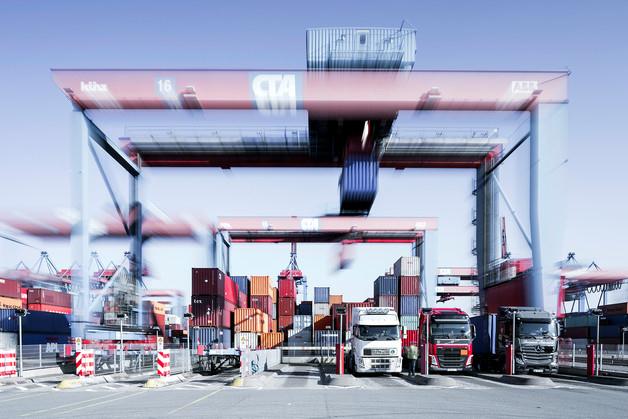The Port of Hamburg has become the first German seaport to introduce a slot-booking system for truckers at all four of its container terminals.

According to the port, all haulage contractors for container deliveries and collections at HHLA Container Terminals Burchardkai, Altenwerder and Tollerort, as well as Eurogate Container Terminal Hamburg, can only enter the terminals within a pre-allocated time window. The trucking planners have to notify the requested transport time via an EDI interface or slot-booking website to the relevant terminal. The slot will be booked for the truck if there is sufficient capacity available at the time.
Each time slot lasts an hour, within which the truck is handled with maximum priority at the container terminal. If the driver misses the slot, the truck will be handled with lower priority, provided there is capacity at the terminal. If the driver arrives with a significant deviation from the booked time window, the slot is lost and a new booking must be made. Slot cancellations, rebookings or exchanges and additional bookings are possible by agreement with the terminal.
“With the slot-booking system, we have developed an intelligent solution that makes container transport at the port faster and more efficient,” said Jens Hansen, executive board member of HHLA. “This step enhances the quality of our Fuhre initiative, which was launched in June 2011 and is now being advanced as Fuhre 4.0. It is a good example of our intention to drive digital change at the port along with our partners.”
More ultra-large container ships with capacities of over 20,000 TEUs are now calling at the Port of Hamburg. This means that up to 14,500 TEUs are handled in a single call and results in container transport peaks around the port. The new slot-booking system is expected to relieve these peaks and spread the truck-handling load equally. The system also aims to reduce waiting time for trucks and to offer haulage companies a standardized process and homogeneous information exchange at all container terminals.
A slot-booking system is already in use at some US ports and some terminals in Europe, Asia and Australia.